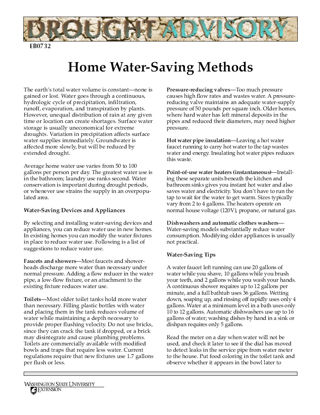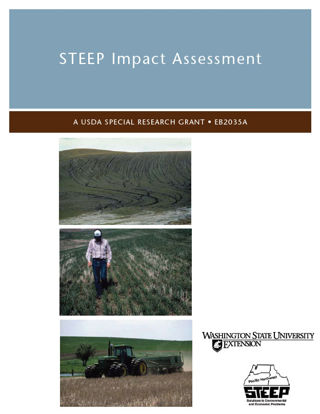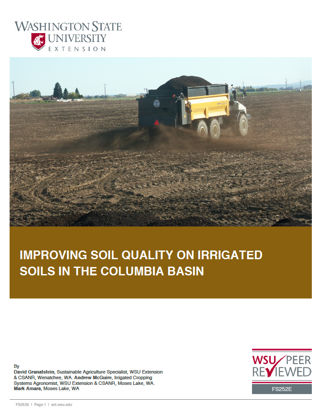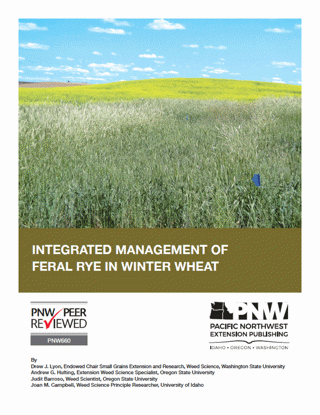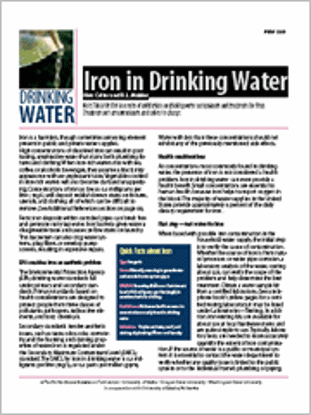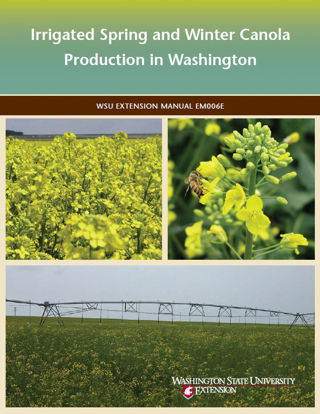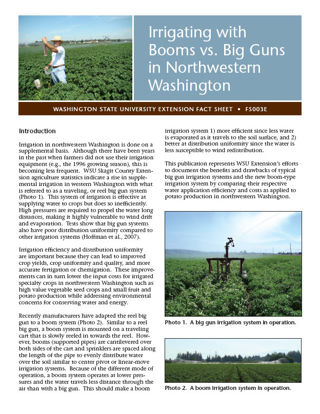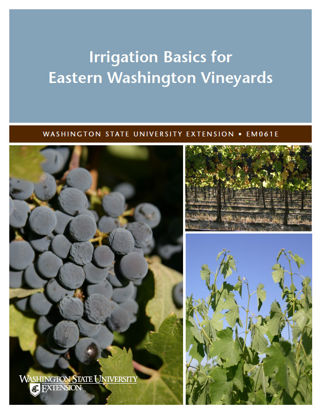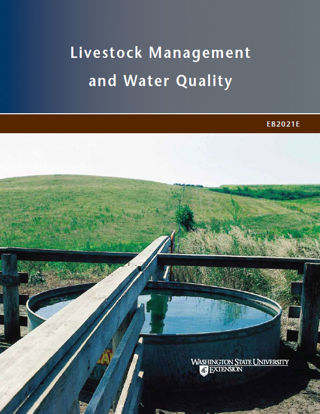You have no items in your shopping cart.
Recently viewed products
Irrigation and Water
Irrigation and Water
Home Water-Saving Methods
Water-saving devices and tips can reduce water use in the home. Faucets, shower heads, toilets, pressure-reducing valves, insulation, point-of-use water heaters, washing machines, and automatic dishwa ...
$0.00
Impact Assessment - Solutions to Environmental and Economic Problems (STEEP), a USDA Special Research Grant
The 30-year STEEP (Solutions to Environmental and Economic Problems) research and education program is a nationally known endeavor developing conservation practices with a systems approach. As documen ...
$0.00
Improving Soil Quality on Irrigated Soils in the Columbia Basin
Soils in the Columbia Basin are highly productive for agriculture but can have problems related to their physical properties that can be influenced by different soil improvement practices. This public ...
$0.00
Integrated Management of Feral Rye in Winter Wheat
This publication discusses identification and management of feral rye.
$0.00
Iron in Drinking Water
Iron in drinking water, though harmless at typical household concentrations, can result in poor tasting, unattractive water that stains both plumbing fixtures and clothing.
$0.00
Irrigated Spring and Winter Canola Production in Washington
Winter and spring canola have been produced on
limited acreages in Washington State for many years.
However, that concentration is rapidly expanding due
not only to food (canola oil) and feed (cano ...
$0.00
Irrigating with Big Guns vs. Boom Carts in Northwestern Washington
This publication compares the benefits and drawbacks of big gun and boom-type irrigation systems by documenting their respective water application efficiency and costs as applied to potato production ...
$0.00
Irrigation Basics for Eastern Washington Vineyards
This manual aims to clarify irrigation options and strategies for both juice and wine grape production in Washington State. It covers the basics behind soils, water, and plant water-use.
$0.00
Livestock Management and Water Quality
This publication provides livestock owners and managers with techniques to address water quality problems. The information presented emphasizes the effects of pathogens and sediment, the pollutants ...
$0.00


